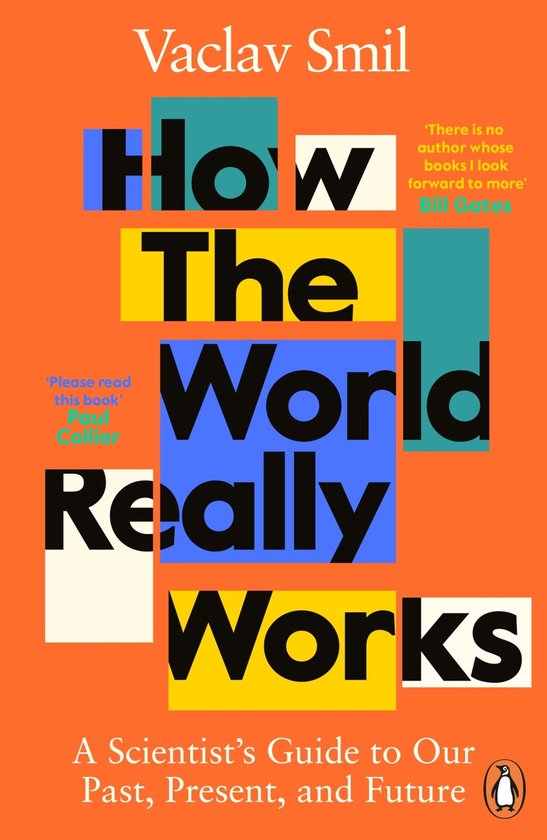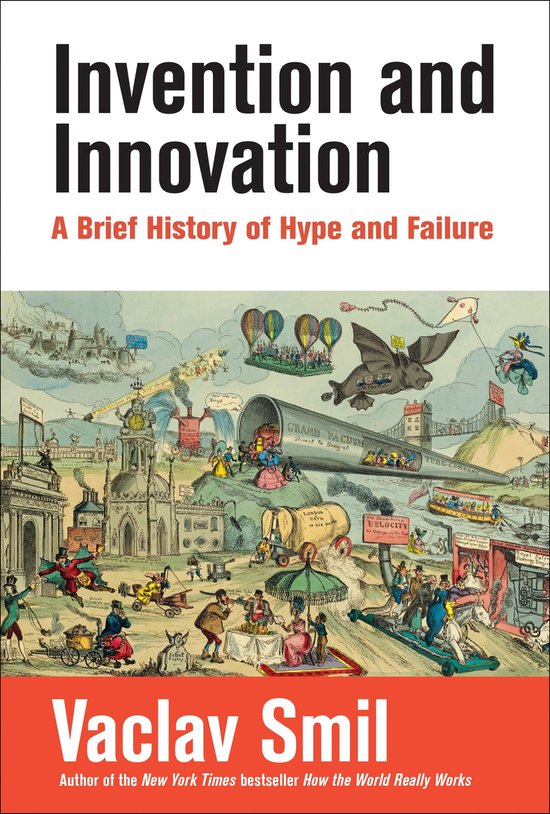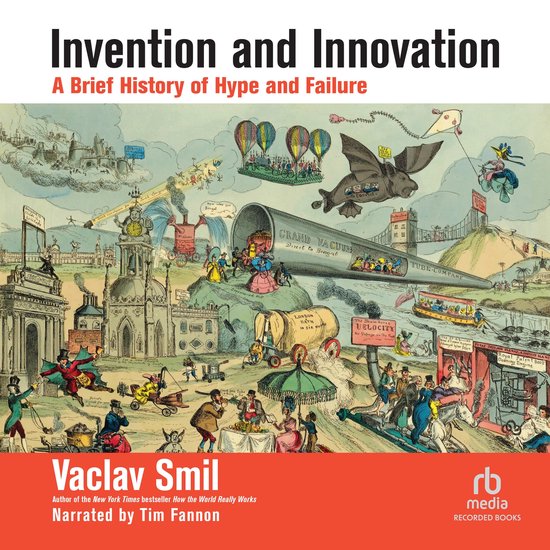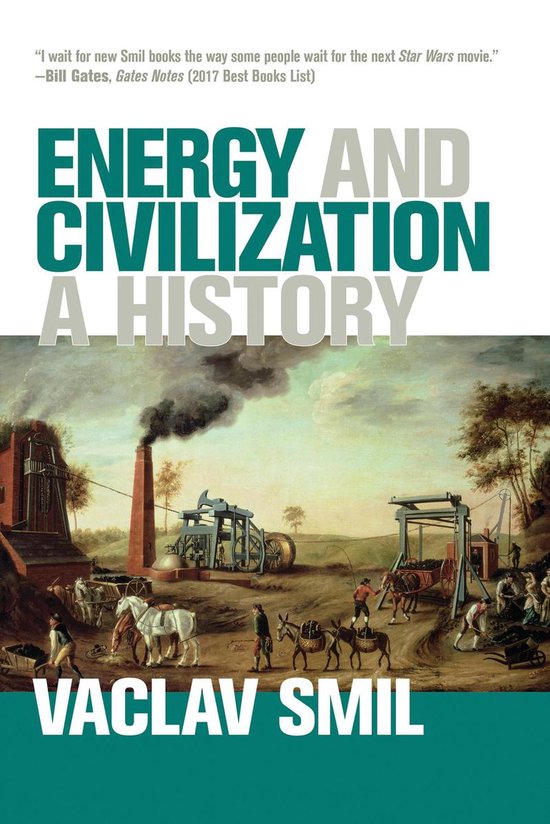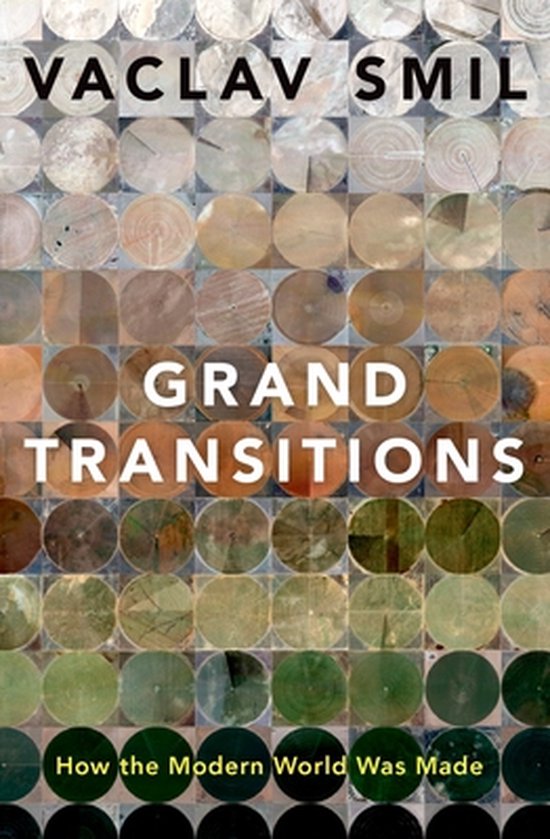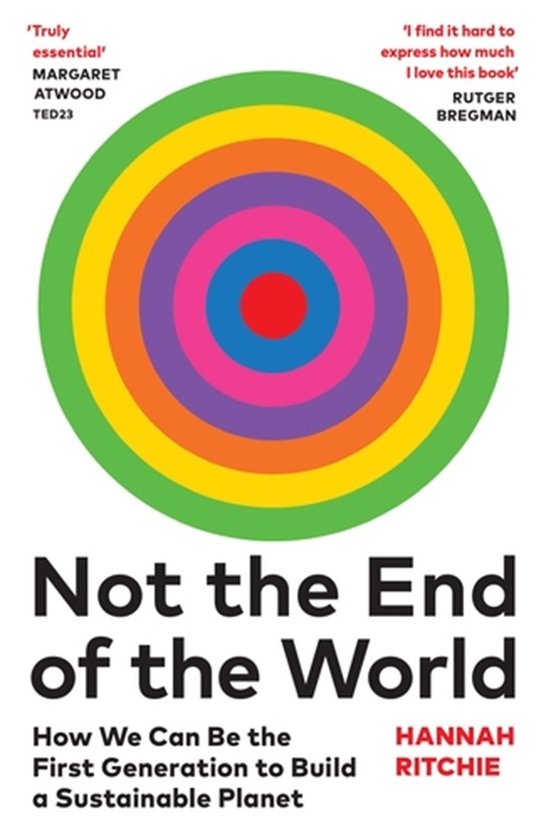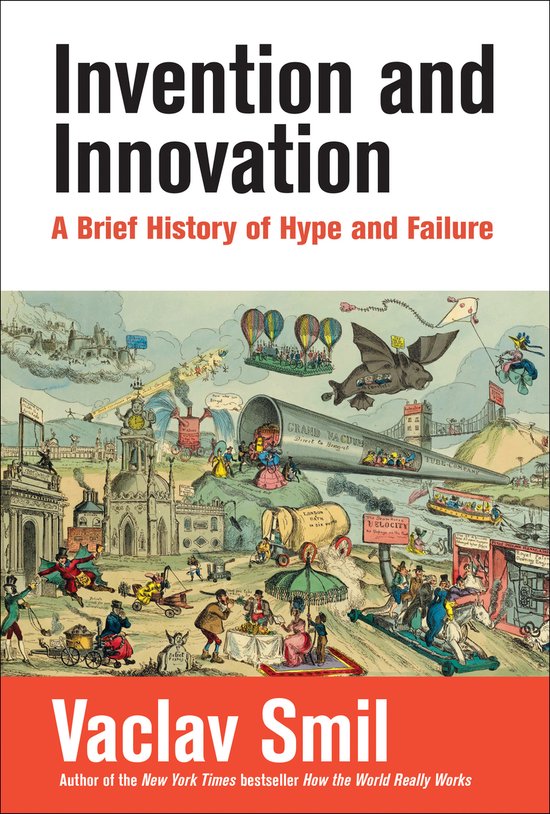
Invention and Innovation
From the New York Times-bestselling author, a new volume on the history of human ingenuityand its attendant breakthroughs and busts.
The world is never finished catching up with Vaclav Smil. In his latest and perhaps most readable book, Invention and Innovation, the prolific authora favorite of Bill Gatespens an insightful and fact-filled jaunt through the history of human invention. Impatient with the hype that so often accompanies innovation, Smil offers in this book a clear-eyed corrective to the overpromises that accompany everything from new cures for diseases to AI. He reminds us that even after we go quite far along the invention-development-application trajectory, we may never get anything real to deploy. Or worse, even after we have succeeded by introducing an invention, its future may be marked by underperformance, disappointment, demise, or outright harm.
Drawing on his vast breadth of scientific and historical knowledge, Smil explains the difference between invention and innovation. He then looks at three different types of inventions.
Inventions that failed to dominate as promised:
Inventions that turned disastrous:
Inventions we have long been promised (and that would be highly beneficial):
Finally, he offers a wish list of inventions that we most urgently need to confront the staggering challenges of the twenty-first century.
Filled with engaging examples and pragmatic approaches, this book is a sobering account of the folly that so often attends human ingenuityand how we can, and must, better align our expectations with reality.
The world is never finished catching up with Vaclav Smil. In his latest and perhaps most readable book, Invention and Innovation, the prolific authora favorite of Bill Gatespens an insightful and fact-filled jaunt through the history of human invention. Impatient with the hype that so often accompanies innovation, Smil offers in this book a clear-eyed corrective to the overpromises that accompany everything from new cures for diseases to AI. He reminds us that even after we go quite far along the invention-development-application trajectory, we may never get anything real to deploy. Or worse, even after we have succeeded by introducing an invention, its future may be marked by underperformance, disappointment, demise, or outright harm.
Drawing on his vast breadth of scientific and historical knowledge, Smil explains the difference between invention and innovation. He then looks at three different types of inventions.
Inventions that failed to dominate as promised:
- Airships
- Nuclear fission
- Supersonic flight
Inventions that turned disastrous:
- Leaded gasoline
- DDT
- Chlorofluorocarbons
Inventions we have long been promised (and that would be highly beneficial):
- Travel in vacuum (hyperloop)
- Nitrogen-fixing cereals
- Nuclear fusion
Finally, he offers a wish list of inventions that we most urgently need to confront the staggering challenges of the twenty-first century.
Filled with engaging examples and pragmatic approaches, this book is a sobering account of the folly that so often attends human ingenuityand how we can, and must, better align our expectations with reality.
| Auteur | | Vaclav Smil |
| Taal | | Engels |
| Type | | Hardcover |
| Categorie | | Wetenschap & Natuur |
